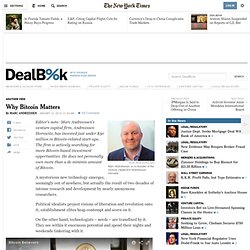

The energy transition tipping point is here. I have waited a long time—decades, really—for a tipping point in the energy transition from fossil fuels to renewables beyond which there can be no turning back.

Fresh evidence pertaining to many themes I have explored in this column over the past three years suggests that tipping point is finally here. Underlying the abundance hype over tight oil, tar sands and other "unconventional" sources of liquid fuel has been a dirty little secret: They're expensive. The soaring cost of producing oil has far outpaced the rise in oil prices as the world has relied on these marginal sources to keep production growing since conventional oil production peaked in 2005. Those who ignored the hype and paid attention to the data have known this for years. U.S. housing moves closer toward rentals. A booming rental market is tapering down decades of emphasis on home ownership in the United States, and Wall Street is cashing in on the trend with new securities.

The Wall Street Journal is reporting that rental units now account for the highest proportion of new construction in the U.S. in 40 years. This trend is being attributed to higher lending standards - it’s easier for corporations to obtain loans than families. The millennial generation is also more inclined to rent homes than put down roots. There’s also been a flattening of wages, even as productivity has soared and many household expenses have risen.
The millennial generation is saddled with student loan debt, and there’s more global competition that will inevitably smooth salaries.
Fracking and house prices: Buyer beware. Emerging markets: It's like 1997 all over again. Why Bitcoin Matters. Keith Bedford/ReutersMarc Andreessen, a co-founder of the venture capital firm Andreessen Horowitz.

Editor’s note: Marc Andreessen’s venture capital firm, Andreessen Horowitz, has invested just under $50 million in Bitcoin-related start-ups. The firm is actively searching for more Bitcoin-based investment opportunities. He does not personally own more than a de minimis amount of Bitcoin. A mysterious new technology emerges, seemingly out of nowhere, but actually the result of two decades of intense research and development by nearly anonymous researchers. Political idealists project visions of liberation and revolution onto it; establishment elites heap contempt and scorn on it. On the other hand, technologists – nerds – are transfixed by it. Eventually mainstream products, companies and industries emerge to commercialize it; its effects become profound; and later, many people wonder why its powerful promise wasn’t more obvious from the start.
What technology am I talking about? Money Is a Terrible Way to Measure the Value of a College Major - Jordan Weissmann. Yes, students need to understand what skills are marketable.

But they also need to study subjects that keep them engaged enough to graduate. The cliche about majoring in humanities is that it's a lovely way to spend four years of college and poor way to land a lucrative job. To some extent, that cliche may be true. On the whole, humanities grads earn less than students who study disciplines like business or engineering.
So sayeth the statistics. But the Association of American Colleges and Universities would like you to know that getting a degree in English or History, while perhaps not the most financially rewarding choice, doesn't require an oath of poverty either. If you subtract out workers with graduate degrees, humanities and social science students fare a bit worse, but not by much. That said, I want to address an underlying problem with this whole debate. There's also something to be said for encouraging students to study something that they enjoy, or have a natural talent for. Technology and jobs: Coming to an office near you. INNOVATION, the elixir of progress, has always cost people their jobs.

In the Industrial Revolution artisan weavers were swept aside by the mechanical loom. Over the past 30 years the digital revolution has displaced many of the mid-skill jobs that underpinned 20th-century middle-class life. Typists, ticket agents, bank tellers and many production-line jobs have been dispensed with, just as the weavers were. For those, including this newspaper, who believe that technological progress has made the world a better place, such churn is a natural part of rising prosperity. Although innovation kills some jobs, it creates new and better ones, as a more productive society becomes richer and its wealthier inhabitants demand more goods and services.
Remember Ironbridge Optimism remains the right starting-point, but for workers the dislocating effects of technology may make themselves evident faster than its benefits (see article). Why be worried? What Jobs Will the Robots Take? - Derek Thompson. It is an invisible force that goes by many names.

Computerization. Automation. Artificial intelligence.